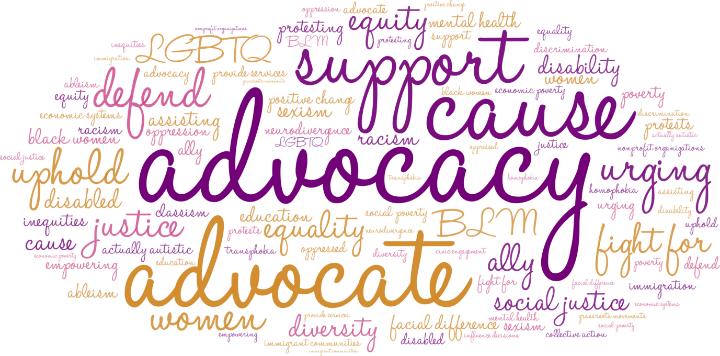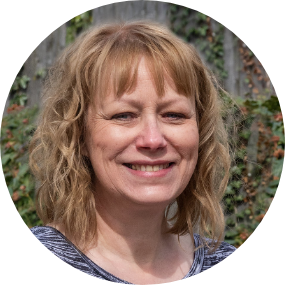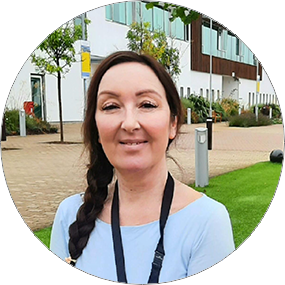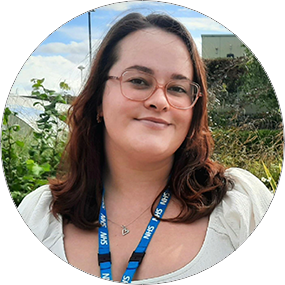Advocacy is free, independent support that helps you to have your voice heard and enables you to express your views and concerns on issues that are important to you.
Advocacy offers support and guidance on understanding and securing your rights. It represents your interests and helps you to obtain the services you may need to improve your health, care, and well-being.
It can be difficult to voice our views when experiencing poor mental health and wellbeing, this can impact negatively on your mental health and can leave you feeling vulnerable and unable to effectively express ourselves. Advocacy enables you to seek help and challenge services.

An advocate is someone who will walk alongside you to help you navigate your issue. They will listen to your views and concerns, and ask you questions to gain a deeper understanding of your issues and challenges.
They will work with you to explore your options by gathering up to date and accurate information to help you to make informed decisions. They will ensure your rights are respected and upheld.
You and the advocate will work together to determine what level advocacy is best suited to meet your needs. This can include contacting and communicating with relevant people if you find that difficult and they can accompany you to offer support at meetings and appointments.
The advocate’s focus is very much on your needs and issues. They are trained to empower you in making decisions about your own life. They will actively gain your consent to share any relevant information with relevant services or professionals to help you understand the options available to you.
When a major change is happening or when important decisions are being made about you, advocates support you to voice your viewpoints, to take part of decision-making processes and help you to take as much control of your life that is feasibly possible for you.
The advocacy process does involve a number of stages which are set out below.
After receiving your referral, a member of the admin team will contact you within 3 working days to confirm receipt. During this call they will gather any missing information from your referral, and you will be issued with your first appointment with an Advocate called a Triage Appointment.
This takes place over telephone unless you find the telephone difficult. The Advocate will explain the service, discuss your referral and how an Advocate may benefit you. They may also refer you into other services as part of the advocacy work, where necessary
This appointment helps develop a clear idea of what your advocacy needs are and how we will help you. The Advocate will explain what happens next as we may be able to help you immediately, offer one-off support or you may need to be placed on a waiting list. If you need help in an emergency or you are in a crisis, your referral with take priority.
If you were placed on a Waiting List, you will be allocated to an Advocate as soon as one becomes available. Once allocated, a member of the admin team will call you to schedule an appointment within 5 working days with your allocated worker, who will conduct an Advocacy Assessment.
Your Advocate will use the information from your Triage Appointment and review this with you to create an Advocacy Agreement. They will do this by work with you to create a tailored support plan setting out the steps you wish to take, to address your problems and how the plan can be achieved.
The agreement sets out the tasks required to achieve your goals and the level of input you are able to make. Each task will be broken down into manageable parts and it will clearly define the tasks you are able to carry out yourself and the tasks that will require advocacy assistance.
The Advocate will work with you to accomplish the agreed upon tasks. You will have direct access to your advocate, and together you will work to achieve the agreed goals from the advocacy assessment.
Both you and the Advocate will review the progress of the Advocacy Agreement on a regular basis to discuss the achievements and difficulties you have faced, making changes where necessary. This helps to gain an understanding of what has worked well, what could be done better, where you need further advocacy support or where you can act more independently. The review ensures the Advocacy Agreement is kept up to date and reflects the support that best suits you and your needs.
At the end of the advocacy process, your Advocate will take you through an Exit Interview and carry out an Impact Survey. This focuses on the impact you have seen following your engagement in the advocacy process and the social and practical outcomes it has helped you to achieve. It helps us to demonstrate the benefits our work has on individuals and the local community, which is shared with current and potential funders and commissioners.
If you would like an advocate you can complete one of our confidential referral forms by accessing the relevant link or you can contact us directly to discuss your referral further.
When using our online referral system, you will receive an automated acceptance email confirming the receipt of your information.

Andrea has been our Project Manager since January 2016 and undertakes some advocacy work on an ad-hoc basis. She has been with us since 2011 as a volunteer, then becoming an employed Mental Health Advocate and our Volunteer & Training Facilitator.
Andrea has a vast experience of advocacy on a professional and personal basis, in managing a high volume of complex and challenging caseloads, delivered Mental Health Advocacy Awareness training, and worked alongside a variety of professionals delivering and cofacilitating inpatient workshops and mental health training programmes.
Andrea has a passion to connect with others and hear their stories, ‘we are all on a journey and everyone’s journey is personal to them’. For a long time, Andrea has advocated for voices to be heard, she began challenging services back in 1996 and she hasn’t stopped.

Jill has worked within Mental Health and disability services since 1993, has extensive experience and knowledge in supporting vulnerable people experiencing complex mental health conditions and mental health crisis.
Empowering individuals has been at the heart of Jill’s work throughout her career.
She has worked with individuals to identify specific needs arising from the impact of their mental health difficulties and producing a support plans to help them move forward.
Jill has been an advocate since 2020, holds high regard and respect for others, the right to confidentiality and independence, her passion is to promote, facilitate and develop a person’s ability to live an independent life to the best of their ability. Jill takes pride in delivering a compassionate, person-centred, and non-judgemental approach to help those she works with to achieve their best outcomes.

Hello, I am Adelle and I have worked within the Mental Health sector since 2014, been a carer for the last 13 years, and I have lived experience of mental health being. I believe, being mentally well is just as important, as being physically well. Having mental health difficulties can impact all aspects of our lives, including our relationships with others. Anyone can experience a decline in their mental health, no one is immune.
My knowledge and experience have developed through various roles including a Mental Health Recovery Worker, at a live-in Adult Mental Health Residential Service, and within the community as a Mental Health Outreach Worker, as well as a Mental Health Project Coordinator. I understand how devastating poor mental health can be, having the lived experience, personally and as a family carer.
Supporting and advocating for others to improve their mental health is a passion of mine, that I feel is my vocation. Being a Mental Health Advocate is my dream job, and a role I have wanted to make my career path for a long time. Being a member of the STAMP Revisited team is something I am very proud off.

Hi, my name is Clare, and I am a Mental Health Advocate for STAMP Revisited. I came to STAMP after getting my bachelor’s degree in Psychology in 2021 and my master’s degree in Forensic Psychology in 2023.
I am very passionate about the importance of mental health and the impact that the correct support can have on anyone who is struggling. My passion comes from seeing family members struggle with their mental health, through this I saw a gap in provision and knew that I would love to have a career in supporting those with mental health issues and their families.
The thing that drew me to STAMP was that the support we offer is very much client led, we work with the client on matters that they feel ready to address and amplify their voice. Feeling empowered and confident in one’s own ability is so important in improving mental health.